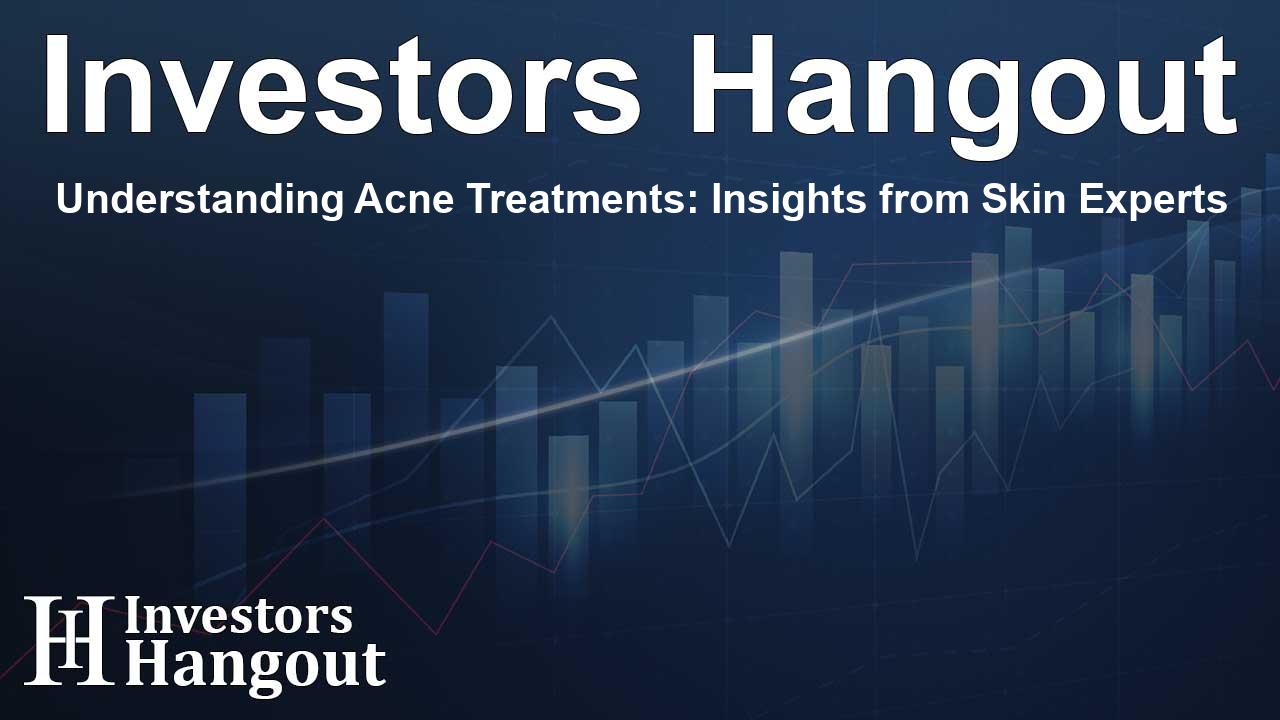Understanding Acne Treatments: Insights from Skin Experts

Understanding Acne and Its Treatments
Acne is a widespread skin condition that affects a significant number of people at some point in their lives. As Acne Awareness Month approaches, it's essential to delve into common misconceptions and explore effective treatments. Board-certified dermatologists provide crucial insights into acne types and the treatments available to help individuals achieve clear skin.
What Causes Acne?
Acne manifests in various forms, including blackheads, whiteheads, and more severe types such as cysts and nodules. Notably, it isn't contagious, but it can severely impact an individual's self-esteem and, if neglected, could lead to scarring. Understanding the root causes of acne is vital in developing a suitable treatment plan.
Different Types of Acne
Among the most notorious forms of acne are cystic acne, fungal acne, and hormonal acne. Cystic acne, for instance, results from clogged pores caused by dead skin cells and excess oil, leading to large and painful cysts. If untreated, it can result in permanent scars. Fungal acne is a form of folliculitis due to yeast overgrowth, commonly exacerbated in warm, humid conditions.
Hormonal acne typically aligns with fluctuations in hormone levels, especially around menstrual cycles. Understanding these distinctions is crucial as different types of acne require tailored treatments.
Effective Acne Treatments
When it comes to treating acne, several options are available, ranging from over-the-counter solutions to prescription medications. Products containing vitamin A derivatives, commonly known as retinoids, are effective for unclogging pores, while benzoyl peroxide targets acne-causing bacteria. Salicylic acid is another key ingredient that helps reduce inflammation in the skin.
Consulting with Professionals
Board-certified dermatologists provide customized care, focusing on the specific type of acne and its severity. For more stubborn cases, healthcare providers might prescribe antibiotics or hormonal treatments that help control oil production. Each treatment plan is crafted with the patient's unique skin in mind, promoting optimal results.
The Role of DIY Hacks
Social media has introduced numerous DIY beauty and skincare hacks. However, not all these trends are beneficial. For example, while chamomile tea might be calming, direct application from tea bags can irritate the skin. Similarly, while certain hacks involving dandruff shampoo can help with specific types of bumps, they may also lead to irritation if used incorrectly.
The Importance of Expert Advice
Dermatologists emphasize the need for cautious experimentation with at-home treatments. Although some trends might show potential benefits, consulting with a professional before trying them can prevent unnecessary skin issues. Pimple patches, for instance, can effectively manage surface-level pimples but may not be suitable for deeper acne.
Conclusion
As the conversation around acne treatment grows, understanding the complexities involved is essential. Each person's experience with acne can differ greatly, and consequently, treatment should be tailored to their unique needs. Consulting with a board-certified dermatologist provides individuals with the guidance necessary to navigate their skin journey safely and effectively.
Frequently Asked Questions
What is the most common type of acne?
The most common types of acne include blackheads, whiteheads, and cystic acne, with variations depending on individuals' skin types.
How can I treat hormonal acne?
Hormonal acne can be managed through a combination of topical treatments, hormonal therapies, and lifestyle adjustments after consulting with a dermatologist.
Are there effective over-the-counter solutions for acne?
Yes, products with retinoids, benzoyl peroxide, and salicylic acid are commonly recommended for acne treatment.
Is it safe to use DIY solutions for acne?
While some DIY solutions may be helpful, it’s crucial to approach them with caution and seek professional advice to avoid irritation or worsening of skin conditions.
When should I see a dermatologist about my acne?
If over-the-counter treatments are ineffective or if acne causes significant discomfort or self-esteem issues, it’s advisable to consult a board-certified dermatologist.
About The Author
Contact Owen Jenkins privately here. Or send an email with ATTN: Owen Jenkins as the subject to contact@investorshangout.com.
About Investors Hangout
Investors Hangout is a leading online stock forum for financial discussion and learning, offering a wide range of free tools and resources. It draws in traders of all levels, who exchange market knowledge, investigate trading tactics, and keep an eye on industry developments in real time. Featuring financial articles, stock message boards, quotes, charts, company profiles, and live news updates. Through cooperative learning and a wealth of informational resources, it helps users from novices creating their first portfolios to experts honing their techniques. Join Investors Hangout today: https://investorshangout.com/
The content of this article is based on factual, publicly available information and does not represent legal, financial, or investment advice. Investors Hangout does not offer financial advice, and the author is not a licensed financial advisor. Consult a qualified advisor before making any financial or investment decisions based on this article. This article should not be considered advice to purchase, sell, or hold any securities or other investments. If any of the material provided here is inaccurate, please contact us for corrections.
